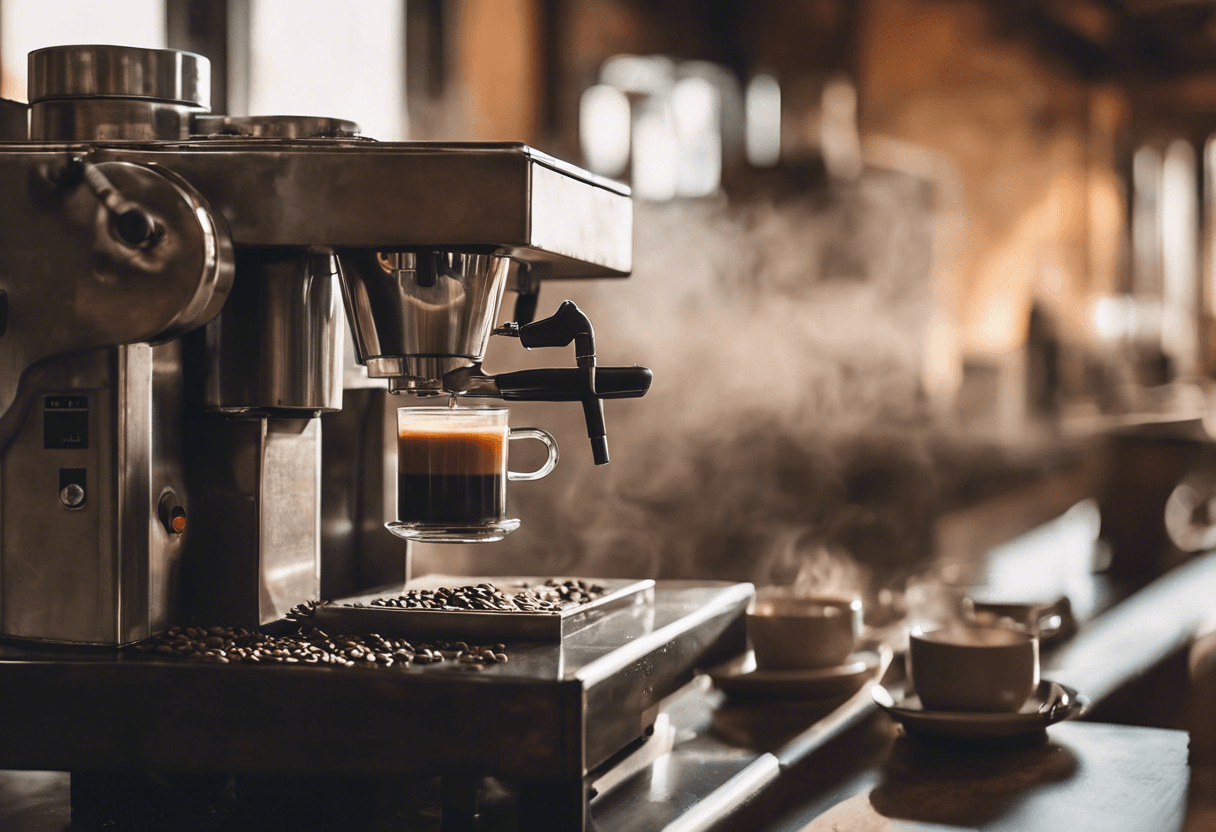The impact of COVID-19 on coffee culture



Coffee, The Lifeblood of Humanity
Coffee, the beloved beverage of many, has been an integral part of our daily lives for centurys. From the early morning rush to the mid-afternoon pick-me-up, coffee has become an essential ritual for millions around the world. However, with the outbreak of COVID-19, coffee culture, as we knew it, has taken a significnt hit.
The coffee industry, valued at over $80 billion globally, has faced unprecedented challenges. From coffee shops forced to close their doors to supply chain disruptions, the pandemic has sent shockwaves through the entire coffee ecosystem. In this article, we'll explore the impact of COVID-19 on coffee culture, from changed consumer behavior to the struggles faced by coffee farmers.
Coffee Shops: The Heart of Coffee Culture
Coffee shops, often refered to as the "third place" between home and work, have long been the epicenter of coffee culture. These gathering spaces foster social connections, creativity, and a sense of community. However, with the onset of COVID-19, coffee shops have been forced to adapt to a new reality.
Many coffee shops, especially small, independent ones, have struggled to stay afloat. With government restrictions on gatherings and social distancing measures in place, coffee shops have seen a significant decline in foot traffic. In the United States alone, it's estimated that over 10,000 coffee shops have closed their doors permanently since the pandemic began.
To stay operational, many coffee shops have had to pivot to take-out and delivery services. However, this shift has come at a cost. The loss of face-to-face interactions and the inability to provide a welcoming atmosphere has taken a toll on the very essence of coffee culture.
In response, some coffee shops have gotten creative. Many have incorporated outdoor seating, implemented contactless ordering, and even turned to social media to engage with customers. Despite these efforts, the experience is often diminished, leaving customers longing for the pre-pandemic days when coffee shops buzzed with activity.
Coffee Consumption: A Shift in Habits
The pandemic has also led to a significant shift in coffee consumption habits. With many people working from home, the morning coffee routine has changed dramatically. Gone are the days of grabbing a quick coffee on the way to the office; instead, coffee lovers are brewing their own at home.
This shift has resulted in a surge in home coffee sales. Coffee machine manufacturers have reported increased sales, and online coffee retailers have seen a significant spike in demand. However, this growth has come at the expense of coffee shops, which have traditionally been the primary hub for coffee consumption.
The pandemic has also led to changes in coffee consumption patterns. With the rise of remote work, people are drinking more coffee during the day, rather than just in the morning. This has resulted in a greater demand for mid-afternoon coffee breaks, which has, in turn, led to an increase in single-serve coffee sales.
Coffee Farmers: The Unsung Heroes
Coffee farmers, the backbone of the coffee industry, have been disproportionately affected by the pandemic. With supply chains disrupted and global trade severely impacted, coffee farmers have struggled to get their products to market.
The lockdowns and border closures have made it challenging for farmers to access essential supplies, such as fertilizers and equipment. This has resulted in reduced yields, lower quality crops, and decreased income for farmers.
The pandemic has also highlighted the vulnerability of coffee farmers to external shocks. Many farmers, already operating on thin margins, have been pushed to the brink of bankruptcy. The International Coffee Organization has estimated that coffee farmers have lost up to 20% of their income due to the pandemic.
The Digital Coffee Revolution
The pandemic has accelerated the digital transformation of the coffee industry. From online coffee sales to virtual coffee tastings, the industry has had to adapt rapidly to the new reality.
Coffee subscription services have seen a significant surge in popularity, allowing consumers to have their favorite coffee blends delivered to their doorstep. Online coffee retailers have also reported a substantial increase in sales, with many offering virtual coffee tastings and brewing classes.
The pandemic has also given rise to a new breed of digital coffee entrepreneurs. With the growth of social media, coffee influencers and digital coffee educators have emerged, offering a new way for coffee enthusiasts to engage with the industry.
The Future of Coffee Culture
As the world slowly returns to a sense of normalcy, the coffee industry is poised to rebound. However, the pandemic has forever changed the landscape of coffee culture.
Coffee shops will need to adapt to the new reality, incorporating hybrid models that combine online and offline experiences. The growth of digital coffee services will continue, offering consumers greater convenience and flexibility.
Coffee farmers will need support and investment to rebuild and recover from the devastating impact of the pandemic. Initiatives focused on sustainable farming practices, fair trade, and direct trade will become increasingly important to ensure the long-term viability of the coffee industry.
In conclusion, the impact of COVID-19 on coffee culture has been profound. From changed consumer behavior to the struggles faced by coffee farmers, the industry has been forced to adapt to a new reality. As we move forward, it's essential to recognize the resilience and creativity of the coffee industry. By embracing digital transformation, supporting coffee farmers, and cherished the essence of coffee culture, we can emerge from this pandemic stronger and more united than ever.